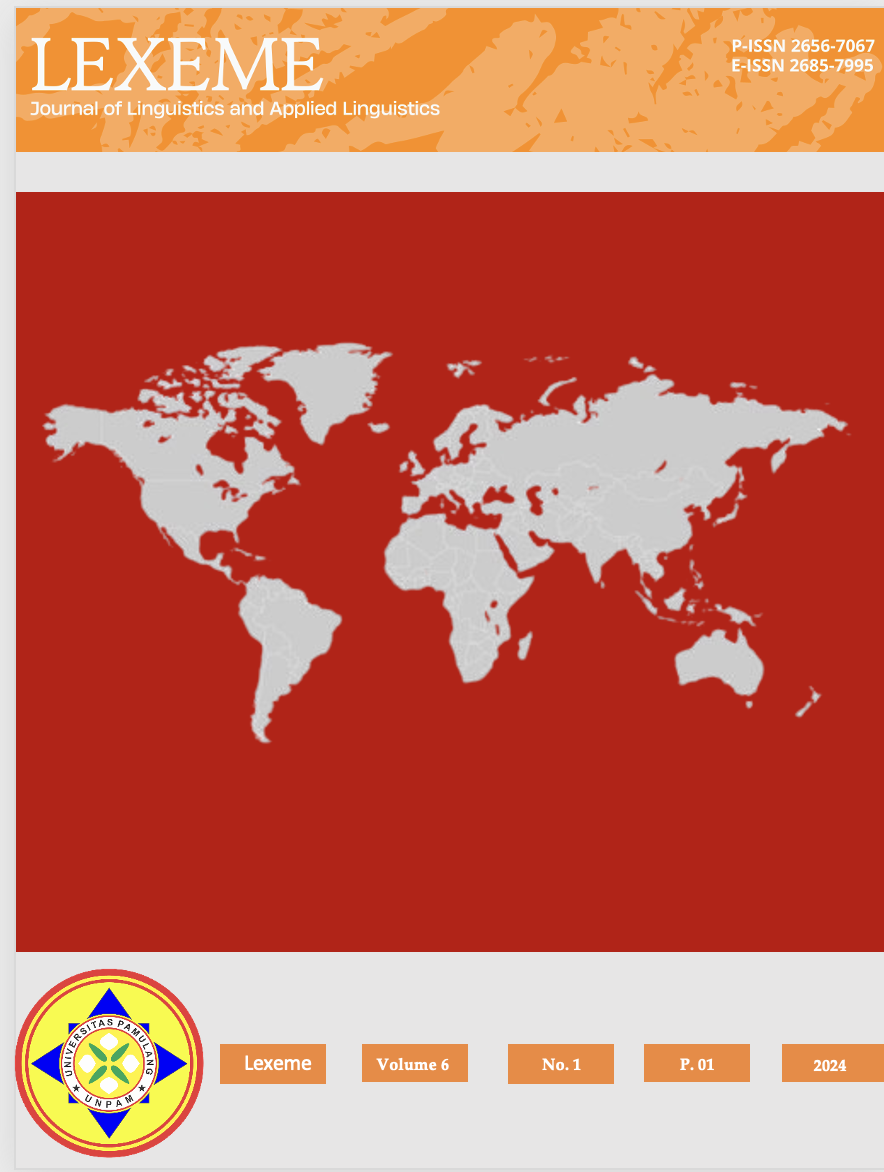Unlocking Vocabulary: How Podcast Listening Boosts Language Skills in Lampung Vocational School Students
DOI:
https://doi.org/10.32493/ljlal.v6i1.41406Keywords:
English podcast, listening habit, vocabulary masteryAbstract
Many scholars believe that students who regularly listen to English podcasts receive positive feedback in learning English. This study aims to prove this belief and explore the relationship between students' podcast listening habits and their vocabulary skills. The researcher used a quantitative method with a correlational research approach. The sample was chosen using purposive sampling. A questionnaire was used to collect data on students' podcast listening habits, and a test was administered to assess their vocabulary mastery. The Pearson Product Moment formula was used for data analysis. The results showed that r_count (0.458) is greater than r_table (0.263), indicating a positive and moderate correlation between podcast listening and vocabulary mastery. The significant F change was 0.000, which is less than 0.05, further supporting the positive correlation. Therefore, it can be concluded that there is a moderate correlation between students' habit of listening to English podcasts and their vocabulary mastery, meaning the more they listen, the better their vocabulary becomes.
References
Andeska, L., Sutiyono, A., Hastomo, T., & Angraini, N. (2021). The Correlation of Vocabulary Mastery and Reading Interest with Quick Reading Ability. IJLHE: International Journal of Language, Humanities, and Education, 4(1), 50–58.
Andrean, J., Sutiyono, A., & Hastomo, T. (2022). Improving listening comprehension through of use podcast. Journal of English Education Students (JEES) , 4(1), 1–13.
Bianchi-Pennington, B. (2018). Designing Literary Discussion With Podcasts. Journal of Adolescent & Adult Literacy, 61(5), 589–591. https://doi.org/10.1002/JAAL.724
Creswell, J. W. (2012). Educational research: Planning, conducting and evaluating quantitative and qualitative research. Pearson Education.
Istiara, F., & Hastomo, T. (2023). Exploring lecturers and administrative staffs’ strategies to hone EFL students’ digital literacy. JOALL (Journal of Applied Linguistics and Literature), 8(1), 151–172. https://doi.org/10.33369/JOALL.V8I1.25568
Istiara, F., Hastomo, T., Febriansyah, M. H., Larasati, D., Pgri, S., & Lampung, B. (2022). An Analysis of Using Code-Mixing on Podcast “Guruku Mr. D” Youtube Channel. Ksatra: Jurnal Kajian Bahasa Dan Sastra, 4(1), 113–122. https://doi.org/10.52217/KSATRA.V4I1.618
Krashen, S. D. (1981). Second Language Acquisition and Second Language Learning. Pergamon.
Nation, I. S. P. (2006). How large a vocabulary is needed for reading and listening? . Canadian Modern Language Review, 63(1), 59–82.
Raman, K., Yamat, H., & Assoc, ]. (2014). Barriers Teachers Face in Integrating ICT during English Lessons: A Case Study. Malaysian Online Journal of Educational Technology, 2(3), 11–19. www.mojet.net
Sari, L. P., Hastomo, T., & Nurchurifiani, E. (2023). Assessing the Efficacy of Duolingo for Acquiring English Vocabulary Skills: Experimental Research. Journal of English Teaching Applied Linguistics and Literatures (JETALL), 6(2), 193–200.
Şendağ, S., Gedik, N., & Toker, S. (2018). Impact of repetitive listening, listening-aid and podcast length on EFL podcast listening. Computers & Education, 125, 273–283. https://doi.org/10.1016/J.COMPEDU.2018.06.019
Thornbury, S. (2002). How to teach vocabulary. England. Pearson Education Limited.
Yulistiani, E., Supriyono, S., Wicaksono, A., & Hastomo, T. (2020). The Correlation between Vocabulary Mastery, Reading Habits, and The Students’ Writing Ability. IJLHE: International Journal of Language, Humanities, and Education, 3(1), 69–76.
Downloads
Published
How to Cite
Issue
Section
License
Copyright (c) 2024 Muhammad Nawawi

This work is licensed under a Creative Commons Attribution-ShareAlike 4.0 International License.







